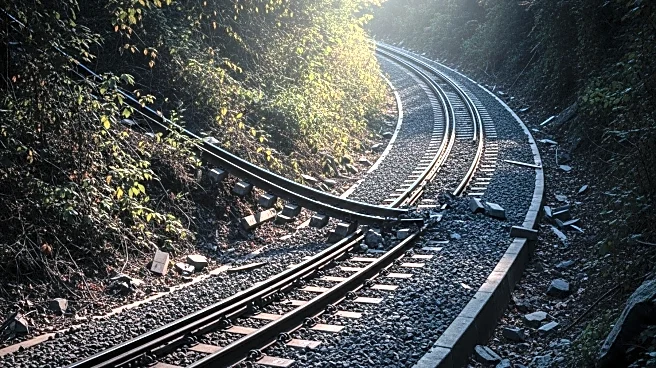What's Happening?
A tragic accident occurred in Lisbon, Portugal, when the 140-year-old Glória funicular derailed and crashed into a building, resulting in the deaths of 16 individuals. Among the deceased were nationals from Portugal, South Korea, Switzerland, Canada, Ukraine, France, and the United States. The crash took place near Avenida da Liberdade boulevard, and more than 60 rescue personnel were involved in the recovery efforts. The cause of the crash remains unknown, prompting the city's public transport operator, Carris, to initiate an independent investigation and inspect all funiculars. Portugal's Prime Minister Luís Montenegro has declared a national day of mourning, describing the incident as one of the biggest human tragedies in recent history.
Why It's Important?
The crash has significant implications for public safety and transportation infrastructure in Lisbon, a city known for its steep, cobbled streets navigated by funicular railways. The incident raises concerns about the maintenance and safety protocols of historical transport systems, which are popular among tourists. The tragedy also highlights the vulnerability of foreign nationals traveling abroad, as several victims were tourists. The event may lead to increased scrutiny and regulatory changes in the operation of similar transport systems worldwide, impacting tourism and local economies reliant on such attractions.
What's Next?
Carris has announced that all funiculars will undergo thorough inspections, and an independent investigation is underway to determine the cause of the crash. The findings could lead to changes in maintenance protocols and safety standards for funiculars in Lisbon and potentially other cities with similar transport systems. The international community, including the families of foreign victims, may seek accountability and assurances of improved safety measures. The tragedy could also prompt discussions on the preservation and modernization of historical transport systems.









